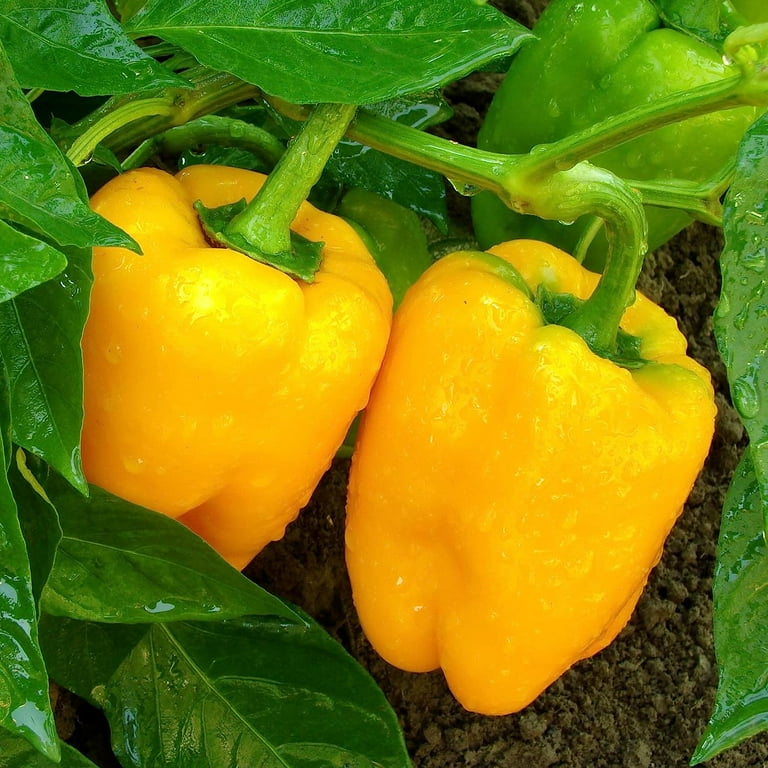Selecting the Best Fertilizers for Peppers: Expert Recommendations
Selecting the Best Fertilizers for Peppers: Expert Recommendations
Blog Article
Organic Vs. Synthetic Fertilizers: Which Is Best for Supporting Healthy And Balanced Pepper Plants?
In the world of nurturing healthy pepper plants, the option between organic and artificial fertilizers stands as a critical decision with far-reaching implications. While both choices purpose to supply important nutrients to sustain plant development, the nuances of their effect on the dirt, plant health, and the setting stimulate an argument that echoes throughout the horticulture area. Recognizing the unique benefits and prospective challenges of each fertilizer kind is critical for pepper farmers seeking to optimize their yields while maintaining an eco-conscious and lasting method.
Advantages of Organic Plant Foods
Organic plant foods use an environmentally-friendly and lasting approach to nourishing pepper plants, supplying important nutrients without making use of artificial chemicals. These all-natural plant foods are originated from organic resources such as compost, manure, bone meal, and seaweed, promoting dirt wellness and biodiversity. Unlike synthetic plant foods, organic choices launch nutrients slowly, guaranteeing a steady and well balanced supply for pepper plants to grow.
One considerable benefit of organic plant foods is their capacity to enhance dirt structure and water retention. By enhancing dirt health, natural plant foods promote helpful microbial activity, which aids in nutrient uptake by pepper plants. In addition, organic plant foods reduce the danger of chemical run-off, safeguarding water sources from air pollution and guarding the atmosphere.
Moreover, organic fertilizers contribute to long-lasting dirt fertility by advertising the growth of valuable soil microorganisms. These microorganisms aid break down raw material, launching nutrients in a type that is conveniently accessible to pepper plants. best fertilizers for peppers. By cultivating a healthy soil ecosystem, natural fertilizers support lasting pepper growing techniques that profit both plants and the atmosphere
Drawbacks of Synthetic Fertilizers
Synthetic plant foods, as opposed to their natural counterparts, pose numerous downsides when made use of to nurture pepper plants, influencing both plant wellness and ecological sustainability. One significant downside of synthetic plant foods is their propensity to seep nutrients from the dirt promptly. This fast leaching can lead to nutrition discrepancies in the soil, triggering plants to experience toxicities or deficiencies. Furthermore, synthetic fertilizers can hurt valuable soil organisms, such as earthworms and advantageous microorganisms, interrupting the dirt ecological community's balance.
Furthermore, the overuse of artificial fertilizers can contribute to water pollution. Excess fertilizers not soaked up by plants can wash away into water bodies, bring about eutrophication, where algae blossoms diminish oxygen degrees in the water, damaging water life. Synthetic fertilizers are usually acquired from non-renewable resources, such as fossil gas, contributing to carbon discharges and environmental deterioration during their production.
Nutrient Absorption Contrast
When comparing organic and synthetic fertilizers in terms of nutrient absorption, organic fertilizers have the advantage of providing a much Full Report more balanced and slow-release source of nutrients. Organic plant foods have a range of macro and micronutrients that are not only advantageous for the plants but additionally advertise healthy soil microbial task, which helps in nutrient uptake.
Moreover, organic fertilizers boost dirt structure and water retention capability, enabling pepper plants to gain access to nutrients more efficiently. This improved soil top quality promotes origin advancement, making it possible for much better nutrient absorption. Synthetic fertilizers, although at first improving plant development due to their high nutrient concentrations, may hinder lasting nutrient absorption by derogatory dirt health and wellness in time.
Environmental Effect Factors To Consider

On the other hand, artificial plant foods, although frequently more promptly readily available and concentrated to plants, can have detrimental impacts on the environment otherwise applied correctly (best fertilizers for peppers). Their production requires high energy inputs, bring about greenhouse gas discharges and adding to environment modification. Moreover, the runoff of excess artificial plant foods can pollute water resources, resulting in eutrophication and damaging water environments.
Best Fertilizer Practices for Peppers
When feeding pepper plants, optimizing nutrient uptake and minimizing ecological influence are key factors to consider. To achieve this, it is important to adhere to ideal plant food practices customized to the details needs of pepper plants. One important method is to do a soil test prior to using any fertilizers. This examination can identify the pH degree of the dirt and identify any type of nutrient deficiencies, directing you in choosing one of the most appropriate plant food formula.
An additional crucial practice is to fertilize pepper plants at the correct time. Generally, peppers take advantage of receiving fertilizer at planting and after that once more when they start to blossom. Over-fertilizing can lead to vitamins and mineral imbalances and hurt the plants, so it is vital to comply with advised application prices.
Furthermore, selecting a well balanced fertilizer with an NPK ratio that suits pepper plants' requirements is fundamental. Organic plant foods, such as compost or manure, can be exceptional options as they release nutrients slowly and improve dirt framework over time. Synthetic plant foods can provide a fast nutrient increase when needed. Inevitably, combining natural and synthetic fertilizers sensibly can assist nurture healthy and balanced pepper plants while decreasing environmental effect.
Verdict

Organic fertilizers use an environmentally-friendly and lasting approach to beneficial pepper plants, giving important nutrients without the use of synthetic chemicals. Unlike artificial plant foods, organic choices release nutrients slowly, making certain a well balanced and stable supply for pepper plants to prosper.
Artificial fertilizers, in contrast to their natural counterparts, present different downsides when made use of to nourish pepper plants, impacting both plant wellness and environmental sustainability. When contrasting synthetic and natural plant foods in terms of nutrient absorption, natural plant foods have the advantage of giving a more well balanced and slow-release resource of nutrients.Additionally, natural plant foods boost dirt framework and water retention capacity, enabling pepper plants to accessibility nutrients much more effectively.
Report this page